APPLL and Pilots Association Ask Appeals Court to Stop Enforcement of New Cruise Ship Limits Pending Appeal
BAR HARBOR—The Association to Preserve and Protect Local Livelihoods (APPLL) and Penobscot Bay and River Pilots Association have asked the United States Court of Appeals to stop Bar Harbor from enforcing the new cruise rules that limit disembarkations pending appeals. APPLL and the pilots association has appealed a March 1 federal court decision. In that decision, a federal judge found in favor of the town and defendant intervenor Charles Sidman and upheld most of the ordinance’s legality.
The new rules, which were approved by voters in November 2022, would limit the disembarkations to 1,000 or less a day. Fines would incur if there are more disembarkations than that. The enforcement of those rules currently do not include ships in 2024 that made reservations before the November 8, 2022 vote.
The Town Council also said in a March public statement that it believe that canceling ships for that season, which starts in May, would be “fundamentally unfair” and “potentially expose the town to additional legal liabilities.”
In the 2025 season, the town would make ships with reservations “made and accepted after March 17, 2022” abide by the new rules.
Sidman is now suing the town, hoping to reverse the councilors’ decision about that enforcement. The town has asked the courts to dismiss that case.
Many Bar Harbor business owners have said that cruise ship visits provide important income. Others says that the ships cause too much downtown congestion, particularly in the summer months. Since the late 1980s, cruise ship visitations had risen annually to more than 150 in 2019. Cruise ships vary in size.
APPLL has argued that the citizen’s initiative, spearheaded by Sidman has cost the town $1.6 million in revenue from cruise ship fees during a time when a proposed budget that will go before voters in June will increase property tax rates by approximately 16 percent. The town has paid over $300,000 in legal fees since the initiative, which has also impacted the budget.
THE MOTION FOR THE INJUNCTION PENDING APPEAL
The motion for the injunction was filed May 3. It is a 164-page document that includes rationale, case law, and multiple exhibits.
The brief argues,
“Acting on the district court’s indulgence, the Town is now enforcing the Ordinance by, among other things, refusing to confirm vessel requests for use of federal anchorages in Frenchman Bay for 2025 (even though the Ordinance, by its terms, imposes “no restriction whatsoever” on anchorage access (Order at 35))—increasing the risk each day that the 2025 cruise season will be eliminated altogether. These actions irreparably harm Appellants now and will cause further irreparable harm unless enjoined. Thus, Appellants ask this Court to enjoin the Town from enforcing the Ordinance pending these appeals.”
APPLL and the pilots’ association had challenged the changes to the Bar Harbor ordinance on multiple state and federal constitutional grounds. APPLL is a recently formed nonprofit comprised of some area businesses, as well as the properties where cruise ships currently disembark, and the tenders who transport people from the cruise ships to Bar Harbor.
The plaintiffs had argued that the ordinance violates three provisions of the United States Constitution:
On March 1, Federal Judge Lance Walker ruled that it did not conflict with most matters with the Constitution except for seafarers protection of shore access. Walker ruled that this did not “justify awarding (the) appellants ‘any meaningful relief,’” the injunction reads.
“Since 2008, the Town managed cruise visitation through voluntary passenger “caps” (3,500 passengers/day in the peak summer months of July and August and 5,500 passengers/day in the less intense months of May, June, September, and October) negotiated with the cruise lines. The harbor master coordinated requests from ships and confirmed vessel bookings for the federal anchorages based on these voluntary caps,” the injunction request reads.
APPLL and the pilots association had also asked for a preliminary injunction in the original months of the case in 2023, but withdrew that request to bar enforcement because the town said it would not enforce the ordinance’s changes “pending the outcome of the litigation.” According to this request, the “requests for a permanent injunction remained.”
One of the May 3 request’s points is that the language of the appeal originally said “passengers” were the ones that were subject to the 1,000 a day cap. The language in the petition, it says, was eventually changed to “persons,” which would limit everyone, including crew and visitors. The injunction request argues that the ordinance is constitutionally infirm in its “application to ‘persons’ because that cannot be severed. ‘Persons’ is used throughout the ordinance. Excising ‘persons’ would make the ordinance inapplicable to seafarers, and also to everyone else, rendering it unintelligible and unenforceable.”
It says that the district court had not analyzed this point and showed through an image of the ordinance’s language what such a striking of persons would look like.
It also argues that the court’s interpretation of the Commerce Clause is too restrictive, and that appellants would be injured irreparably without an injunction because enforcement would mean that the pier owners would have to deny entrances to the 1,001 disembarking person and everyone who follows or risk the ordinances “potentially ruinous and escalating per-person fines.” It also argues that”the supermajority of ships will no longer call at Bar Harbor. The ordinance’s prohibitory impact is already causing a near-total disappearance of 2025 vessel calls.”
According to the injunction Bar Harbor’s harbor master “has not confirmed (has failed to act on) any reservation requests from ships with a lower berth capacity over 1,000 since July 2021. Owner and operators of these vessels require long lead times for their itineraries (many months and even years) and generally do not plan itineraries around unconfirmed port calls.” This, it argues, means that the pier owners and tender owners will see large declines in their revenues. Other businesses, it argues, such as restaurants could potentially need to close in shoulder seasons or employ less people. It is estimated that half of the pilots annual revenue comes from cruise ship piloting. It also argues that there would be no injury to other parties because the town is already in a status-quo situation concerning the enactment of the changes.
The request was written by Timothy C. Woodcock of Eaton Peabody
LINKS TO LEARN MORE
To read the motion in full.
This post is public (like all of our posts) so feel free to share it.
If you’d like to donate to help support us, you can, but no pressure! Just click here.





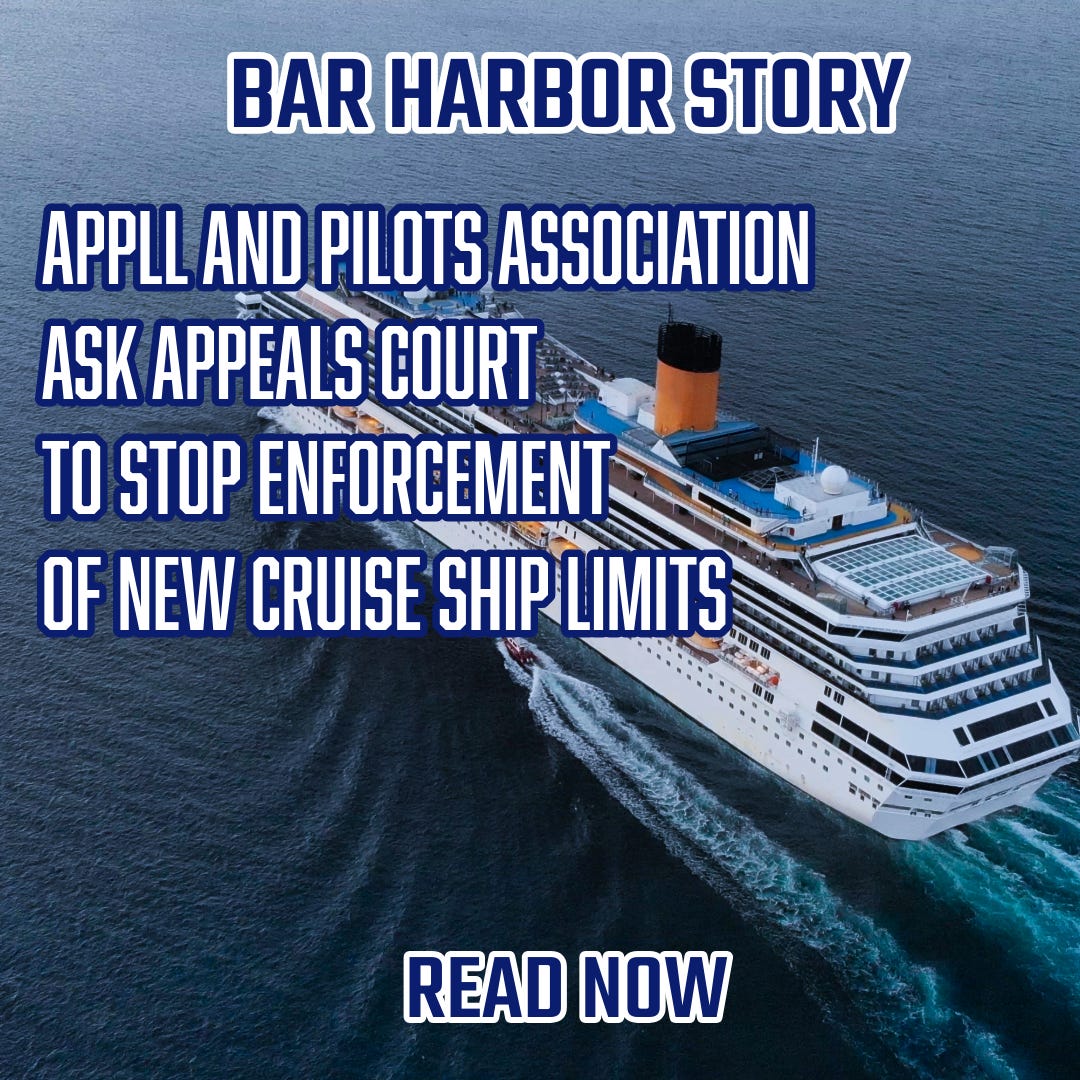
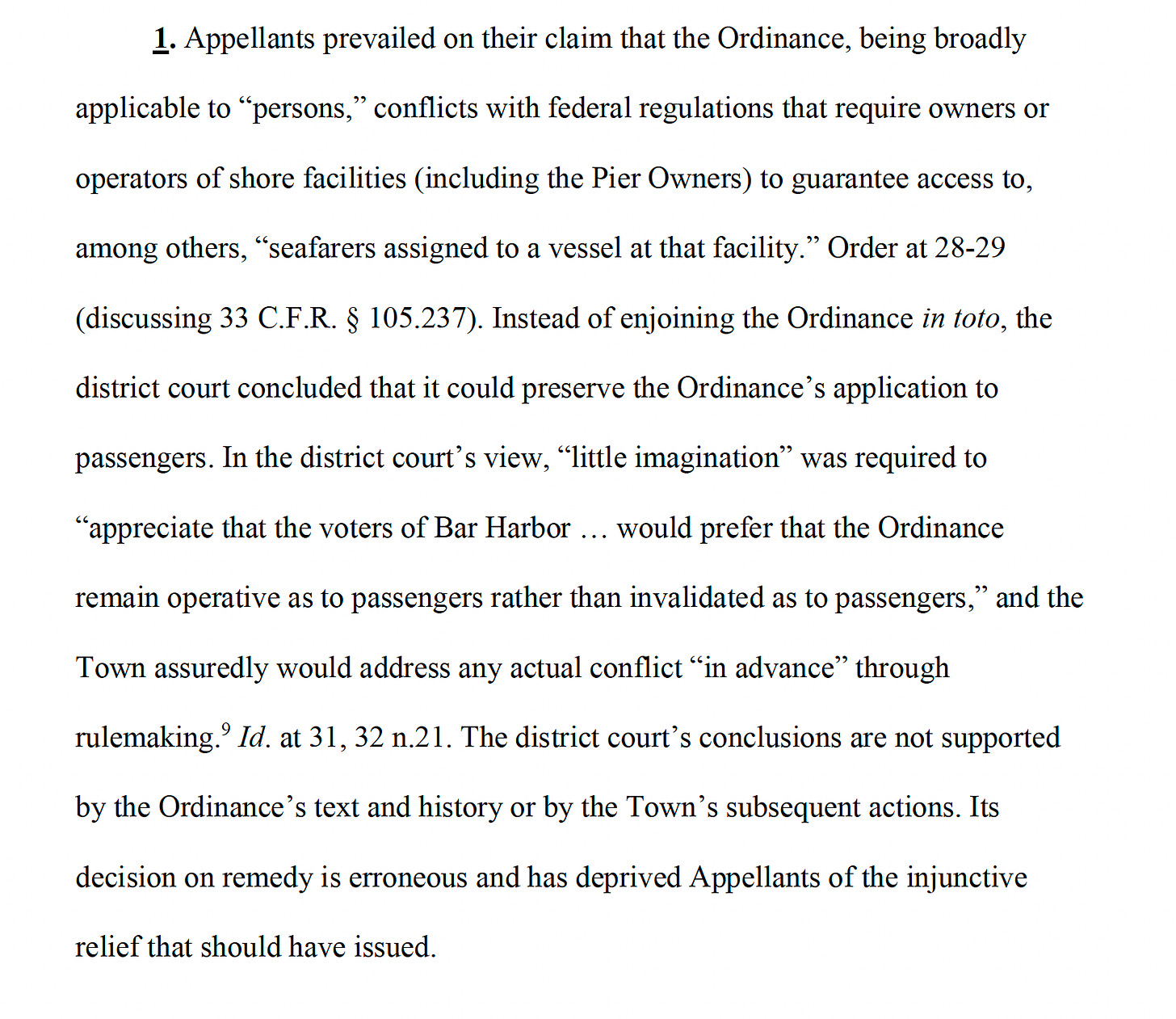

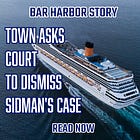
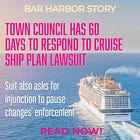
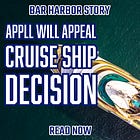
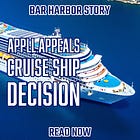
Nothing in the new ordinance prohibits cruise ships from anchoring in the bay.